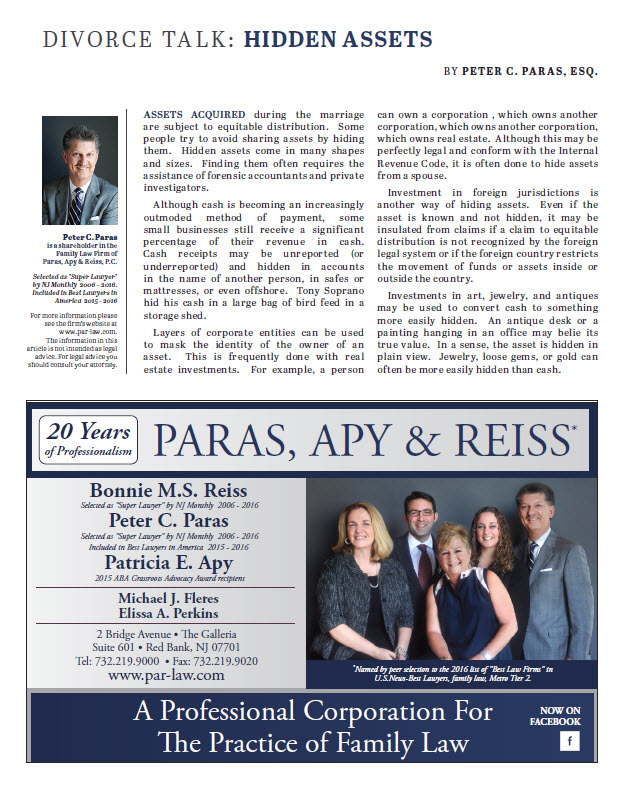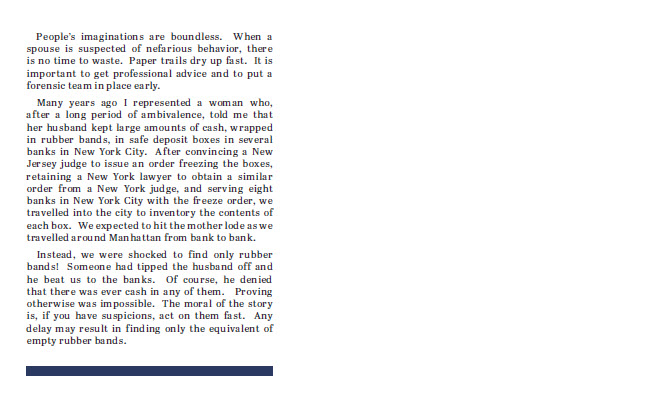ASSETS ACQUIRED during the marriage are subject to equitable distribution. Some people try to avoid sharing assets by hiding them. Hidden assets come in many shapes and sizes. Finding them often requires the assistance of forensic accountants and private investigators.
Although cash is becoming an increasingly outmoded method of payment, some small businesses still receive a significant percentage of their revenue in cash. Cash receipts may be unreported (or underreported) and hidden in accounts in the name of another person, in safes or mattresses, or even offshore. Tony Soprano hid his cash in a large bag of bird feed in a storage shed.
Layers of corporate entities can be used to mask the identity of the owner of an asset. This is frequently done with real estate investments. For example, a person can own a corporation , which owns another corporation, which owns another corporation, which owns real estate. Although this may be perfectly legal and conform with the Internal Revenue Code, it is often done to hide assets from a spouse.
Investment in foreign jurisdictions is another way of hiding assets. Even if the asset is known and not hidden, it may be insulated from claims if a claim to equitable distribution is not recognized by the foreign legal system or if the foreign country restricts the movement of funds or assets inside or outside the country.
Investments in art, jewelry, and antiques may be used to convert cash to something more easily hidden. An antique desk or a painting hanging in an office may belie its true value. In a sense, the asset is hidden in plain view. Jewelry, loose gems, or gold can often be more easily hidden than cash.
People’s imaginations are boundless. When a spouse is suspected of nefarious behavior, there is no time to waste. Paper trails dry up fast. It is important to get professional advice and to put a forensic team in place early.
Many years ago I represented a woman who, after a long period of ambivalence, told me that her husband kept large amounts of cash, wrapped
in rubber bands, in safe deposit boxes in several banks in New York City. After convincing a New Jersey judge to issue an order freezing the boxes, retaining a New York lawyer to obtain a similar order from a New York judge, and serving eight banks in New York City with the freeze order, we travelled into the city to inventory the contents of each box. We expected to hit the mother lode as we travelled around Manhattan from bank to bank.
Instead, we were shocked to find only rubber bands! Someone had tipped the husband off and he beat us to the banks. Of course, he denied
that there was ever cash in any of them. Proving otherwise was impossible. The moral of the story is, if you have suspicions, act on them fast. Any delay may result in finding only the equivalent of empty rubber bands.


